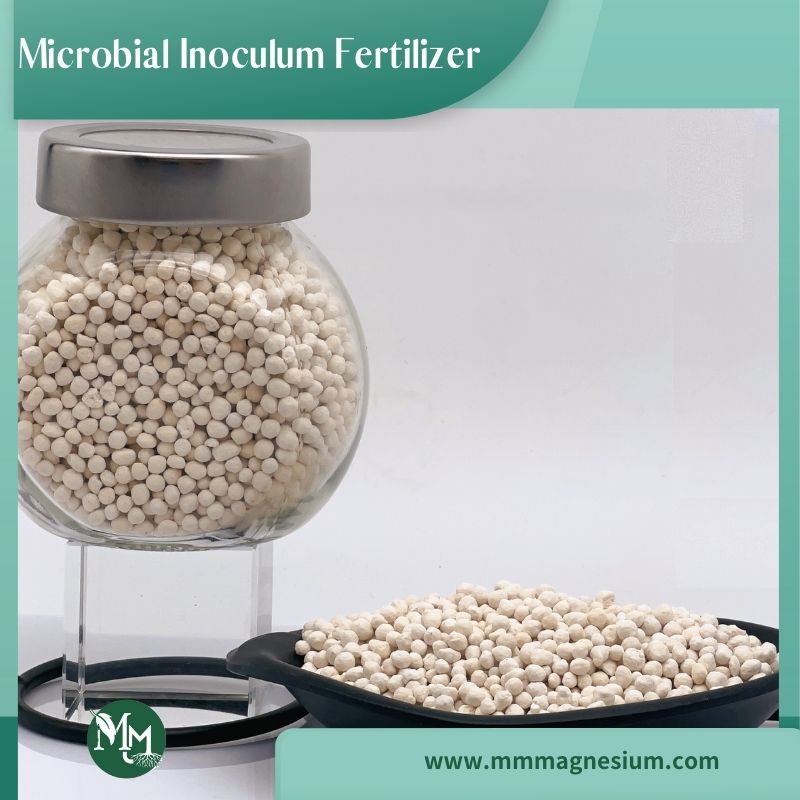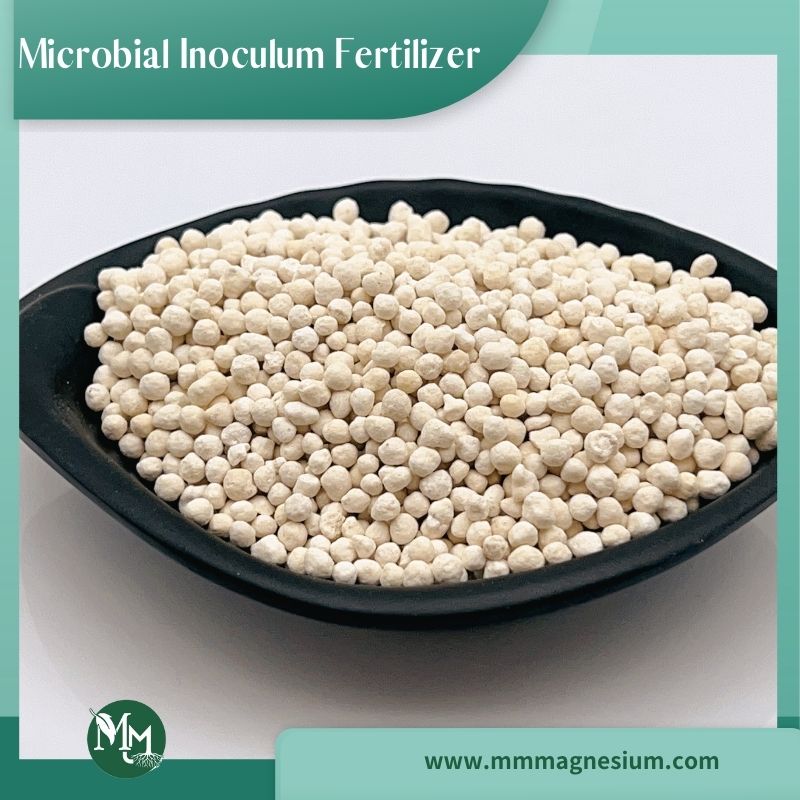

Effective live bacteria>1 billion/g
Si+Ca+Mg>25%
S>4%
Trace elements≥2%
Granular size:2-4mm
Applicable crops: This product is suitable for field crops such as rice, corn, and wheat; fruit and vegetable crops such as apples, peaches, and tomatoes; and economic crops such as onions, garlic, peanuts, and potatoes.




Yingkou Maomei Agricultural Technology Co., Ltd., relying on high-quality mineral resources, produces microbial inoculum fertilizer products with advanced technology and the following characteristics:
Products are exported to the United States, Russia, Indonesia, Canada, Spain, Malaysia, Bangladesh, and other countries, and also cover all provinces, cities, and regions across the country.
For more service advantages of Yingkou Maomei Agricultural Technology, please see Why choose us? and Factory Photos.
Advantages of Microbial Fertilizer, Fengdan999
1. Soil improvement: After using this product, soil activity can be quickly activated, beneficial bacteria can multiply and quickly release a large amount of nutrients, enhance soil fertility, improve fertilizer utilization rate, and increase fertilizer efficiency.
2. Anti-repeat: Use bacteria to prevent various soil-borne diseases caused by repeated cropping; it has a strong preventive effect on physiological diseases such as small and weak roots caused by repeated cropping and other diseases; short and yellow plants; mosaic, fallen leaves, and fallen flowers.
3. Seedling fertilizer double effect: nitrogen fixation, phosphorus dissolution, potassium dissolution, and improve fertilizer efficiency.
4. No deep plowing: break the soil compaction and deepen the tillage layer.
5. Promote root growth: promote root growth, long roots and white roots, thick seedlings, and improve stress resistance.
6. Early listing and good benefits: promote crop flowering and fruiting, improve quality, promote early maturity and prevent premature aging, early listing, pollution-free, high yield, and naturally good benefits.

Fertilization Recommendations
4-20 kg per mu, which can be adjusted appropriately according to soil fertility, crop type and growth cycle.

1. Protect from rain and sunlight, store in a ventilated and dry place, and do not transport or store together with toxic and hazardous substances.
2. Each bag is 25 kg, and we can also provide packaging as small as 1 kg or as large as ton bags according to customer requirements.
3. Plastic woven bags, lined with plastic inner bags. We provide all available packaging such as paper plastic bags/kraft paper bags/PE bags.
4. We provide a variety of transportation methods: road transportation, railway transportation, air transportation, container transportation, and ocean transportation.
5. Our company's marks can provide OEM or neutral marks.

FAQ
1.What crops are suitable for your fertilizers?
Our fertilizers are suitable for a wide range of crops, including cereals, vegetables, fruits, flowers, lawns and ornamental plants. We also have special fertilizers for specific crops to ensure the best growth and harvest.
2.Is there any feedback from other users on this fertilizer?
We have many customer feedback. This feedback can help you better understand the effect and user satisfaction of our products. We can provide some user cases and evaluations for your reference.

Product Knowledge:The relationship between Bacillus subtilis and plant immune system

Bacillus subtilis, as a beneficial microorganism, is widely used in the agricultural field and has shown significant effects in enhancing the plant immune system.
The plant immune system is the defense mechanism of plants against pathogenic bacteria, insect pests and environmental stress. It mainly includes innate immunity and acquired immunity. Innate immunity relies on pattern recognition receptors (PRRs) on the surface of plant cells to recognize pathogen-associated molecular patterns (PAMPs) and activate immune responses. Acquired immunity mainly includes systemic acquired resistance (SAR) and induced systemic resistance (ISR). The former relies on endogenous signaling molecules in plants such as salicylic acid (SA), while the latter is usually produced by beneficial microorganisms such as Bacillus subtilis. Induced, dependent on jasmonic acid (JA) and ethylene (ET) signaling pathways.
Mechanism of action of Bacillus subtilis
1. Inhibit the growth of pathogenic bacteria
Bacillus subtilis directly inhibits the growth of pathogenic bacteria by producing antibacterial substances such as antibiotics, bacteriocins, volatile organic compounds (VOCs) and lipopeptides. For example, antibacterial peptides produced by Bacillus subtilis can effectively inhibit the growth of common pathogenic bacteria such as Xanthomonas spp. and Fusarium spp. and reduce the occurrence of diseases.
2. Induction of plant systemic resistance (ISR)
Bacillus subtilis can activate the ISR mechanism of plants and enhance the broad-spectrum disease resistance of plants. ISR does not depend on SA but passes through JA and ET signaling pathways. Studies have shown that after Bacillus subtilis colonizes the plant rhizosphere, it can significantly increase the expression levels of defense-related genes in plants, such as PR-1, LOX, ACO and other genes, thereby enhancing plant resistance to pathogenic bacteria.
case analysis
1. Tomato disease control
A study on Bacillus subtilis on tomatoes showed that after using fertilizer containing Bacillus subtilis, the expression of defense-related proteins (such as PR protein) in tomato leaves was significantly increased, and the lesion area was reduced by 30%. In addition, the application of Bacillus subtilis not only improved tomato resistance to leaf spot disease, but also promoted tomato growth and increased yield by 15%.
2. Cucumber Fusarium Wilt Control
Bacillus subtilis also shows good disease resistance in cucumber cultivation. In one trial, the incidence of fusarium wilt in cucumbers was reduced by 40% after inoculation with Bacillus subtilis. The researchers found that the amount of Bacillus subtilis colonization in the cucumber rhizosphere was positively correlated with its disease resistance, indicating that Bacillus subtilis effectively improved the disease resistance of cucumbers by enhancing the ISR mechanism.
3. Prevention and treatment of rice sheath blight
In rice cultivation, the application of Bacillus subtilis has also achieved remarkable results. One study showed that in rice fields where Bacillus subtilis was applied, the incidence of sheath blight was reduced by 35%, and the rice grew more vigorously, with the final yield increasing by about 10%. These results further confirm the broad application potential of B. subtilis in enhancing plant immune systems.
Yingkou Maomei Agricultural Technology Co., Ltd
Name: Brenda
Mobile:86-188-7490-2028
Tel:86-400-699-8826
Whatsapp:86-18874902028
Email:info@maomeimg.com
Add:Qianjia Village, Nanlou Economic Development Zone, Yingkou City, Liaoning Province, China